An all-inclusive experience, redefined…At Bawah Reserve in Indonesia’s pristine Anambas...
Begin your day at Bawah Reserve with your choice from our Juice Butler service: fresh...
If you’ve noticed the beautifully patterned fabrics in your villa, you’ve already...
Ready to make a splash?For guests who are both swimming-fit and up for a challenge,...
Welcome to the thermal contrast therapy facility at Aura Sanctuary at Bawah Reserve,...
Planning your dream private island holiday in Indonesia? Here at Bawah Reserve, we...
3 ways to repost or use our Instagram Reels
We love that you want to share a little...
2024 wellness trends were exciting for sure, but it keeps getting better! The top...
A new subtle yet powerful trend - that of being “demure” and “mindful” - has been...
When we think of bees, honeybees often come to mind. However, at Bawah Reserve, a...
In the heart of Southeast Asia lies a hidden gem that promises a retreat into nature,...
It’s safe to say that if you ask someone to name a tropical island destination, they will...
As we step into 2024, the world of well-being is teeming with transformative trends that...
2 years ago for Earth Day 2022, we created 10 sincere pledges for investing in the planet...
Starting to plan your dream wedding? Some couples have a clear idea of their perfect...
We are often asked about the best time of year to schedule a trip to Bawah Reserve.Which...
Our faraway paradise is well worth the journey and there are many ways to get to Bawah,...
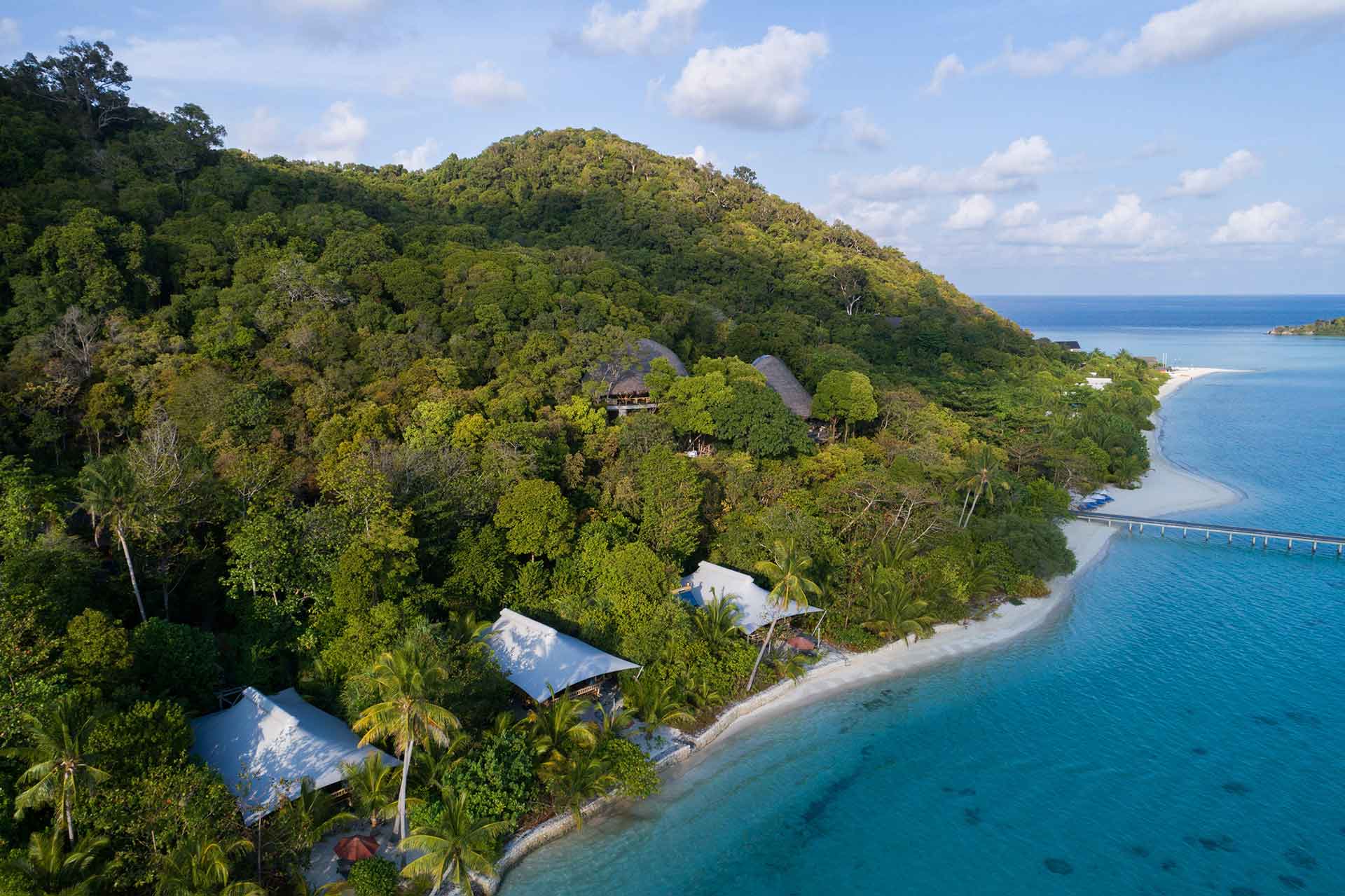
Bawah is remote – a fact that gives the island both its greatest advantages and most significant challenges. With Singapore being two hours by seaplane, and no other islands closer than around 30 nautical miles, this means that Bawah has an independent ecosystem. While remoteness is a draw for adventure-seeking tourists, it also reinforces the business case for integrating sustainability into every aspect of daily life.
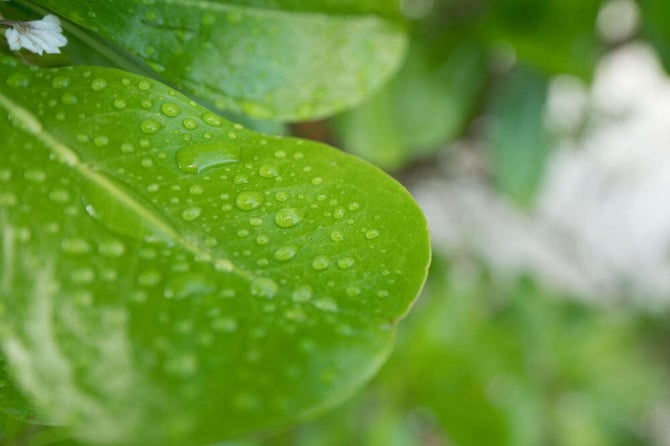
Owner and investor Tim Hartnoll is passionate about the opportunity this presents. “I knew that
Bawah was the one the moment I set foot on the island. When the opportunity came up to develop Bawah, it was very important to me that we followed a sustainable plan,” says Hartnoll. Bawah was developed using a ‘minimal impact’ approach – only clearing what was needed along the shore of the main island, undertaking works without machinery, and using bamboo and other locally sourced natural building materials.
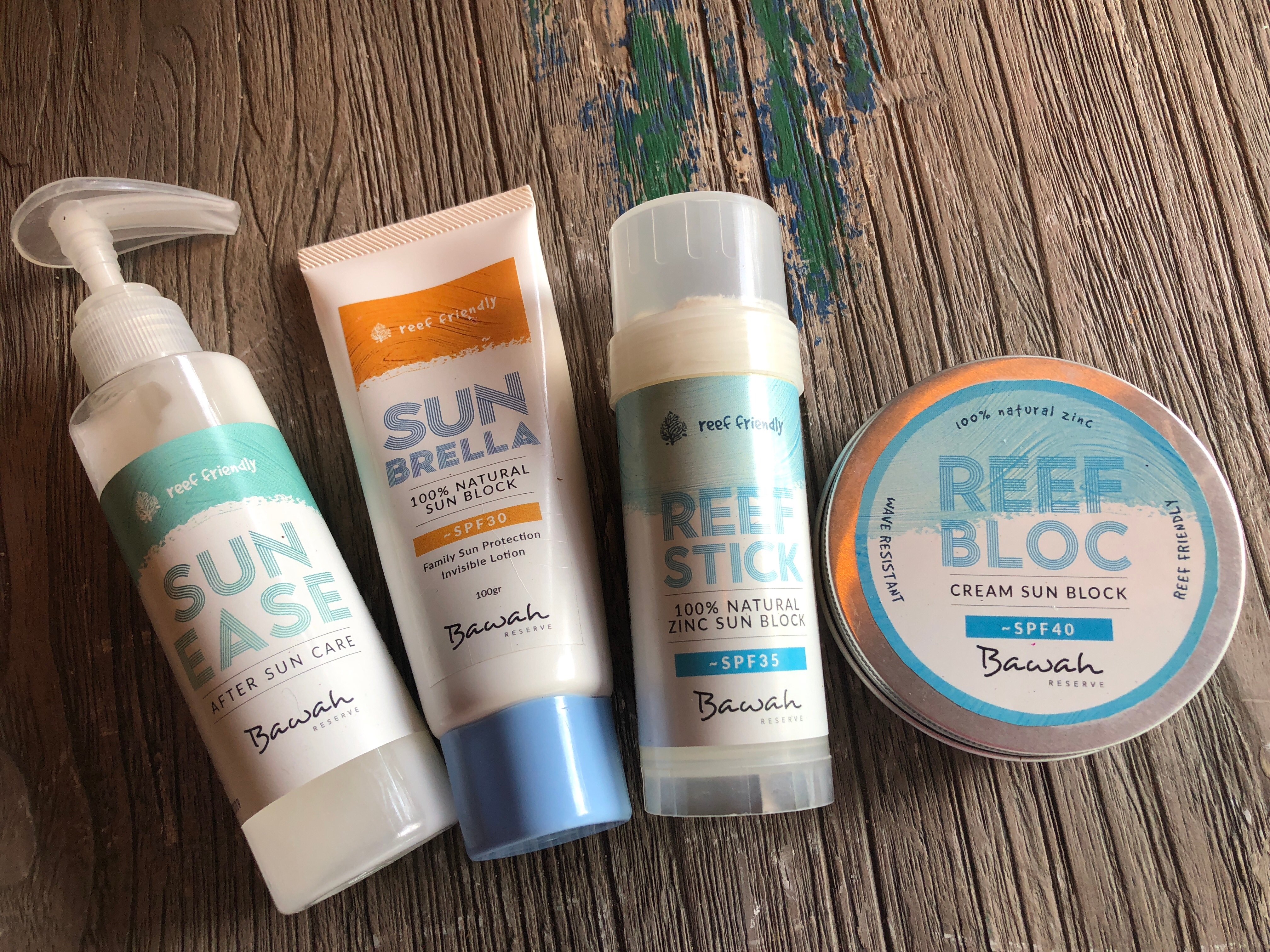
On Bawah, we also take care of the details, as we know that small contributions can collectively make a big difference. Paul Robinson, COO of Bawah Reserve, points towards the use of natural products as an example. ‘We now place a quaint blue & green bag on all the guests’ pillows. This bag is handmade by local, low-income families and holds inside natural, vegan-friendly products for guests to use during their stay. We also offer our reef-friendly suncream, as the usual sunscreen people use to protect themselves does incredible damage to coral reefs when it rubs off the skin, and we now provide every guest with a copper bottle for drinking water on arrival, which they can refill during their stay. This means we can avoid the use of plastic bottles altogether
.jpg?width=670&name=Bawah-reserve-medium-res-4786%20(1).jpg)
The permaculture gardens have been transformed and the team runs the daily tours of the gardens for guests:
"Wondering if Bawah is really all that sustainable? Bawah Reserve is not only a magical place where you can reconnect to nature, it is also where you can be a part of it. Our islands are equipped with permaculture gardens and sustainability areas, and we are happy to pull back the curtain to show you our efforts and let you join in too."
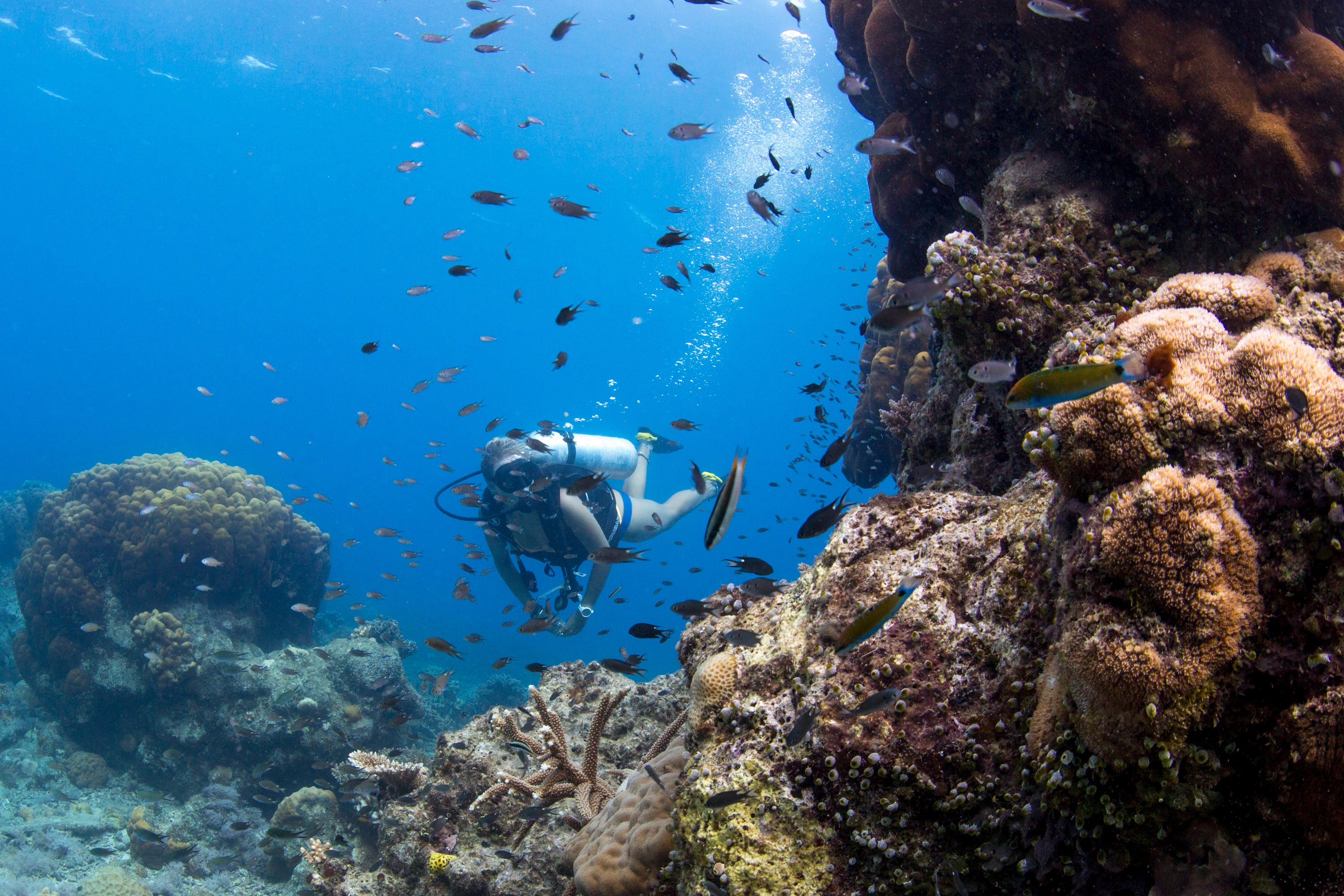
Work is now ongoing to survey the vast variety of marine life around Bawah. To date 240 species of
reef fish have been recorded on our southeastern reefs. Two marine biologists are employed on the
island for coral rehabilitation and have so far built over 257 coral spiders, 111 artificial reefs - hexadomes, and much more.
Fishing immediately around the islands is prohibited, and approximately 16 tonnes of discarded fishing nets and plastic have been removed from local reefs.
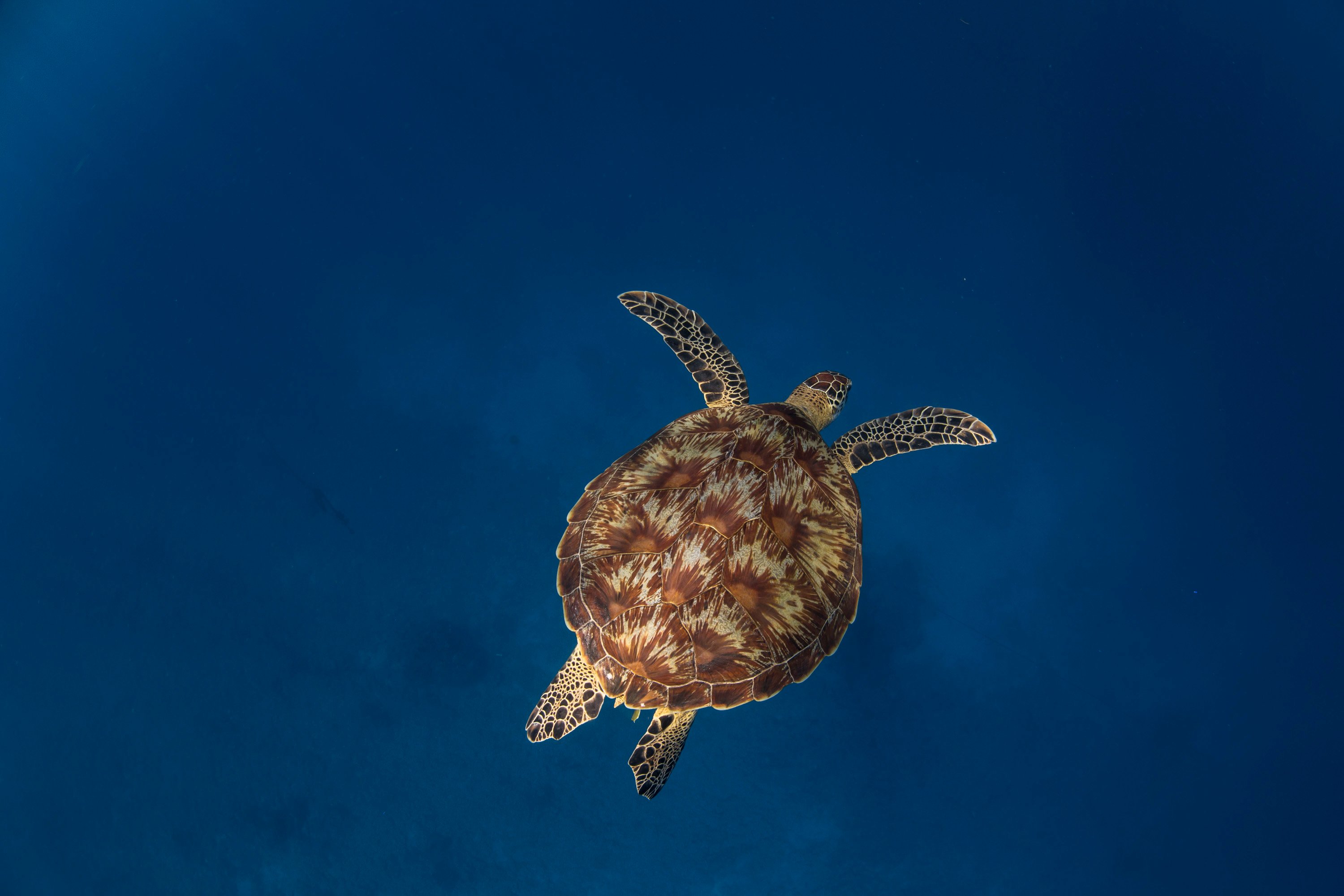
Guests can get involved in these conservation efforts too, with opportunities to work alongside the marine biologists, and to observe work being done to protect marine turtles. Endangered turtles
such as the Green Sea Turtle (Chelonia mydas), and Hawksbill (Eretmochelys imbricate), nest in
significant numbers on Sanggah Island, adjacent to Bawah. Recent work is overseen by our marine
biologists include relocating turtle eggs to nests in locations where they can be better protected,
significantly improving the rate of successful hatching.
Over the last 3 years, 3134 baby turtles hatchlings were safely released into the ocean.
.jpg?width=670&name=Bawah-reserve-medium-res-4891%20(1).jpg)
As an island resort, water is a highly precious resource in our island ecosystem. Rainwater is
collected from the roofs of staff accommodation blocks and other back-of-house buildings, and
carefully stored for later use. Drinking water is also created using a desalination plant. This plant
removes salt and other impurities from seawater and works using reverse osmosis, micro-filtration
and nanofiltration.
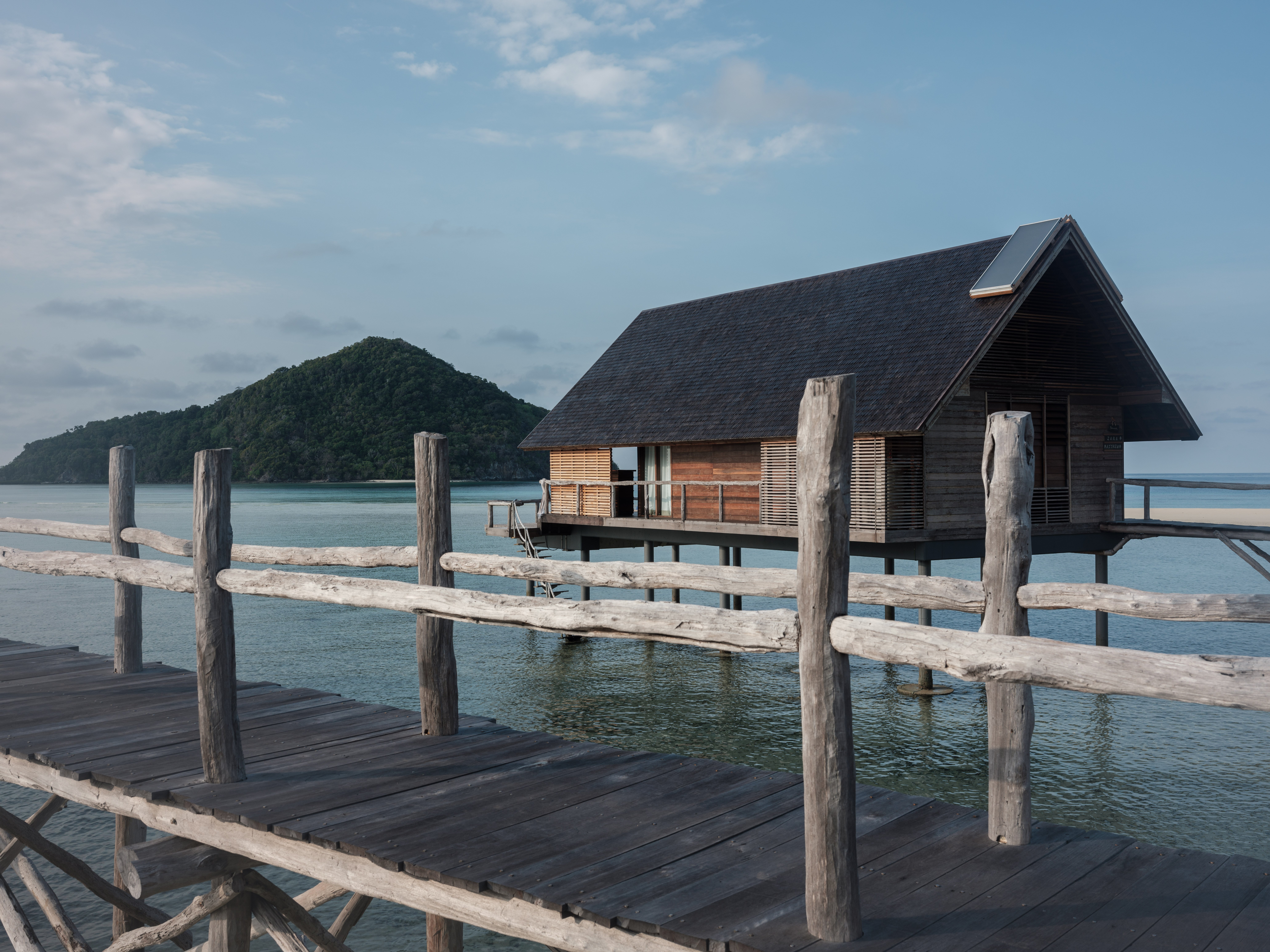
An exciting new project has now been completed with the transition towards using solar power for electricity generation on Bawah.
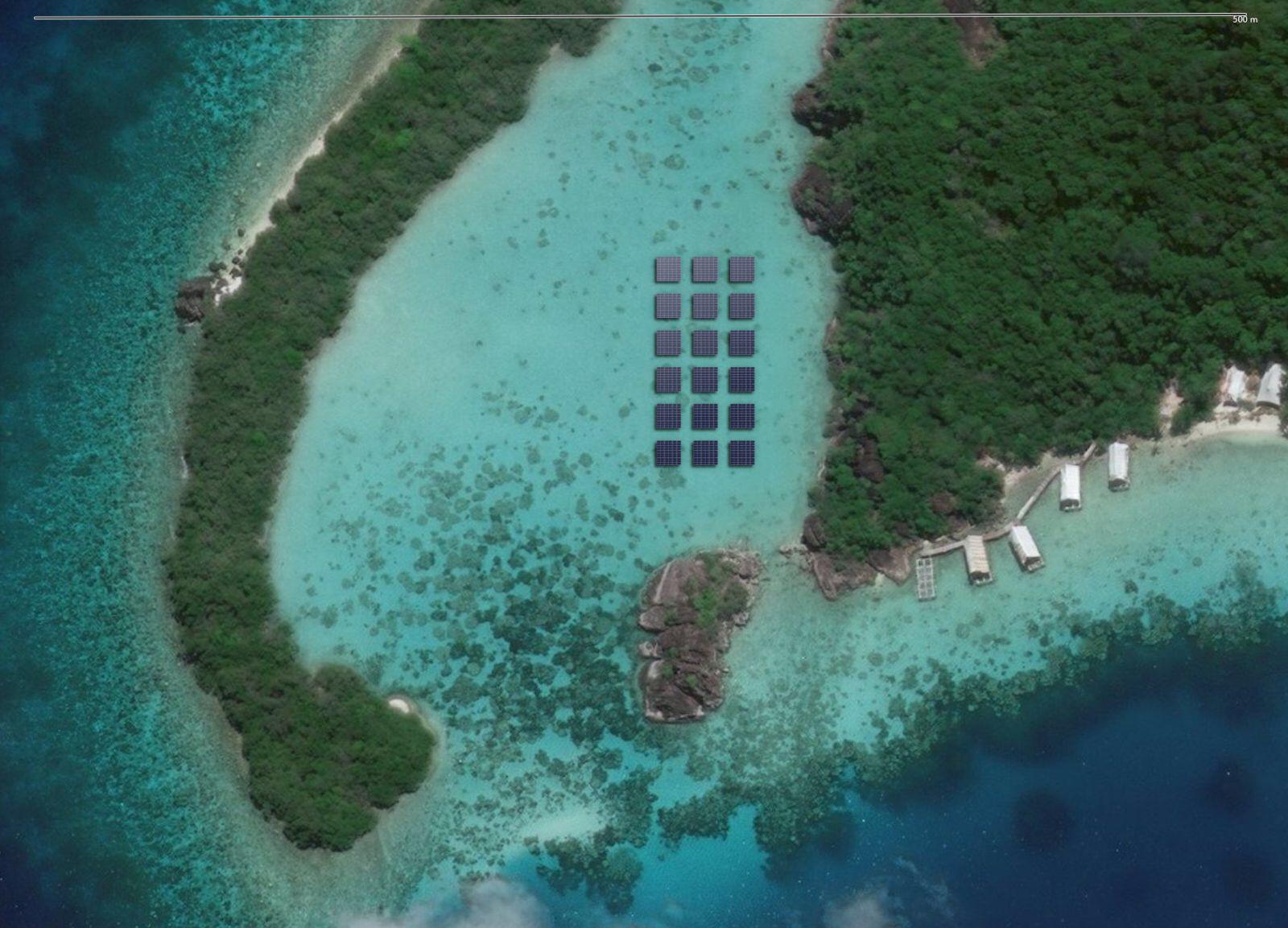
Here again, the islands’ remote location brings challenges, but also natural
advantages given the reliable supply of sunshine. With the installation of solar panels on the roofs of back-of-house buildings and our very own solar panel floating farm.
Whilst the long-term goal is to use solar power to the maximum extent possible, as
with all aspects of Bawah’s development, we will take this journey towards sustainability in a careful
and considered way.
Operating in parallel and close alignment with Bawah Reserve, the Bawah Anambas Foundation (BAF) was created in April 2018 as an independent, not-for-profit organisation. BAF was established to help conserve and expand the biodiversity in the Anambas Islands through a marine conservation programme aimed at protecting the coral and fish on the surrounding barrier reef and a land-based conservation programme, as well as lifting the communities’ welfare. BAF provides a unique opportunity for guests of Bawah to help protect the beauty of Bawah for generations to come. For more details, see https://www.bawahanambas.org/
For more details on sustainability at Bawah, see here
An all-inclusive experience, redefined…At Bawah Reserve in Indonesia’s pristine Anambas...
Begin your day at Bawah Reserve with your choice from our Juice Butler service: fresh...
If you’ve noticed the beautifully patterned fabrics in your villa, you’ve already...
Ready to make a splash?For guests who are both swimming-fit and up for a challenge,...
Welcome to the thermal contrast therapy facility at Aura Sanctuary at Bawah Reserve,...
Planning your dream private island holiday in Indonesia? Here at Bawah Reserve, we...
3 ways to repost or use our Instagram Reels
We love that you want to share a little...
2024 wellness trends were exciting for sure, but it keeps getting better! The top...
A new subtle yet powerful trend - that of being “demure” and “mindful” - has been...
When we think of bees, honeybees often come to mind. However, at Bawah Reserve, a...
In the heart of Southeast Asia lies a hidden gem that promises a retreat into nature,...
It’s safe to say that if you ask someone to name a tropical island destination, they will...
As we step into 2024, the world of well-being is teeming with transformative trends that...
2 years ago for Earth Day 2022, we created 10 sincere pledges for investing in the planet...
Starting to plan your dream wedding? Some couples have a clear idea of their perfect...
We are often asked about the best time of year to schedule a trip to Bawah Reserve.Which...
Our faraway paradise is well worth the journey and there are many ways to get to Bawah,...
© Bawah Reserve 2024. Anambas. Riau Islands. Indonesia
leave a comment